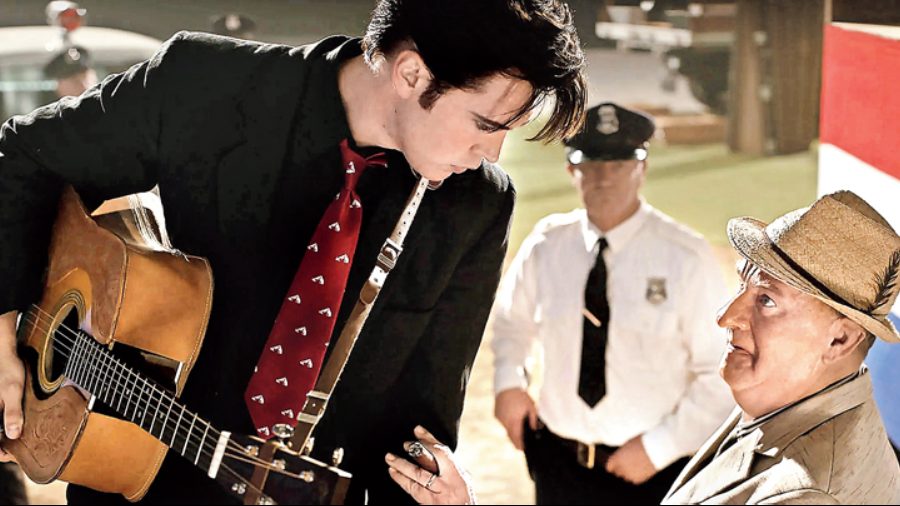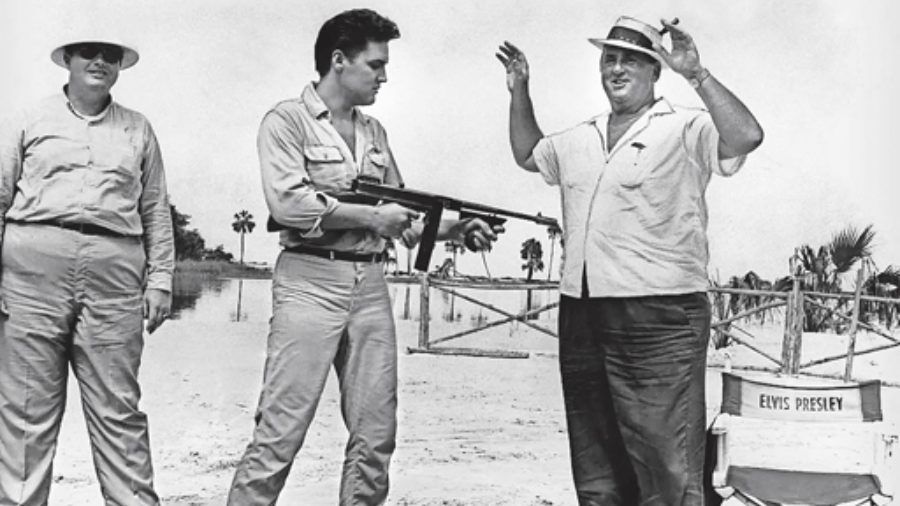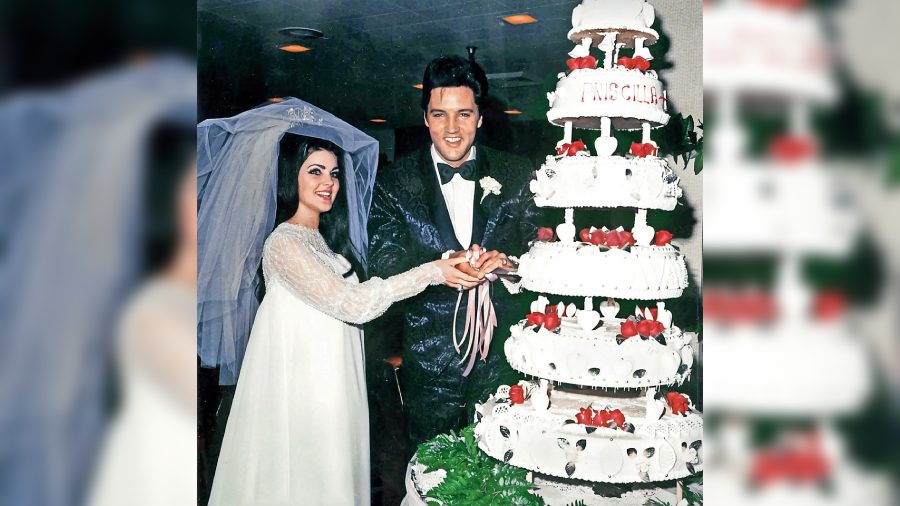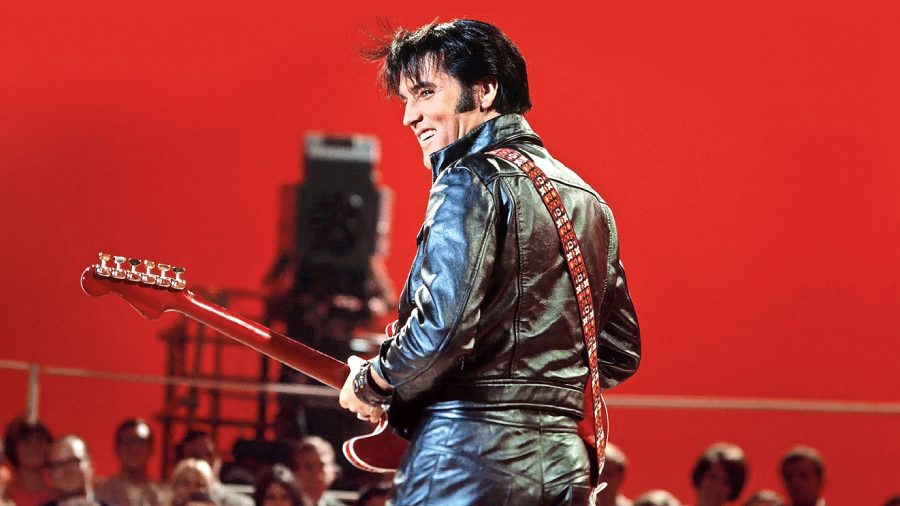Well before the 1950s were up, Elvis Presley was given the image of a sinner and a saint the world couldn’t get enough of. Moving from the humble four walls of Sun Studios in Memphis, he had walked the red carpet to make RCA Records his home where he would remain the record label’s most treasured possession, a money-making machine that gave and gave unquestioningly. Managing his every move was the Colonel... Colonel Tom Parker who made Presley walk the fine line of a clean small-town boy whose roots were in the church choir while on the other extreme was the voice of an untamed man whose music changed the world forever.
It was probably the most creative period of his life, a truth that was not lost on Colonel Tom Parker who went out of his way to advertise him. The King spoke and the world clung to his words. He got into a few fights but in self defence. Fast cars and bikes defined him while a few law suits got thrown at him by girls claiming to have had his child. He was considered by the older generation “morally insane”. On the Steve Allen Show, he sported a tuxedo with lapels that bore resemblance to shark fins and Presley was quick to say “It’s not that often that I get to wear the… er… suit and tails” before belting out I want you/ I need you/ I love you. A rebel had taken over the world. And it was the Colonel’s job to keep the world interested in him… at any cost.
The carnival manager
The cigar-chomping Colonel was always two steps behind Presley. Controversial (at first nobody knew with certitude where he came from), efficient (in making money), dedicated (to his asset) and persuasive (made the King make some bad decisions). Not in a million years would one have thought that Tom Hanks would play the Colonel on screen. C’mon, he is Tom Hanks, the most loved man in Hollywood. But Presley cannot be seen in isolation, not at least without his 300-pound manager.
What the Colonel — colonelcy was bestowed on him in 1948 by Governor Jimmie Davis of Louisiana — made of Presley’s life was a carnival that was perhaps inspired by the controversial figure’s time spent at actual carnivals and fairs; he had to his credit the Great Parker Pony Circus and Colonel Tom Parker and His Dancing Chickens. One of his acts involved placing live chickens on a hot plate covered with sawdust so people could see chickens “dance” to music.
Before Presley, he was the manager of country singers Eddy Arnold for several years and then Hank Snow. His greatest discovery was made possible through a recommendation made by Oscar Davis. After booking Presley as an opening act on a Hank Snow tour, he began pursuing the young singer, his parents and his then manager, Bob Neal, to allow him to offer professional guidance. He, of course, succeeded in 1955. Soon after, he persuaded his new find to look at the bigger picture — leave Sun Records for the giant RCA where his first record, Heartbreak Hotel, became the top-selling record of 1956, that very year the singer made probably the worst decision of his life — sign a contract that made the Colonel “sole and exclusive adviser, personal representative and manager”.
Wasn’t he great?
The flamboyant Colonel cut a deal that got him 25 per cent of Presley’s total income and then it was an insane 50 per cent. He was the person responsible for misguiding Presley to sign a career-ending (well, almost) film deal. The Presley who inspired generations of musicians — The Beatles, Bob Dylan, Bruce Springsteen… — by the mid-1960s was made a commodity for the family audience. Parker was out of touch with the music industry and he did all he could to keep the money rolling in.

Tom Hanks as Colonel Tom Parker (right) and Austin Butler as Elvis Presley in Elvis. Picture: Warner Bros
His Hollywood years were mostly packed with trash storylines (barring the first few films), degenerating from somewhat entertaining to appalling. His last remotely watchable film was Viva Las Vegas! (1964) in which he managed to put in some rock songs and pair with an actress whose image was somewhat similar to his — Ann-Margaret. All that Parker cared for were films that came with enough songs to ensure album releases, which would in turn generate money. There was no justification for songs like (There’s) No Room To Rhumba In A Sports Car, Wolf Call, Petunia, The Gardener’s Daughter, and Fort Lauderdale Chamber of Commerce to even exist.
There were moments of sparks which resulted from his love for singing — like Please Don’t Stop Loving Me and I’ll Remember You — but these were rare offerings.
The forgettable Hollywood years saw three non-film album releases — Pot Luck, which captured his usual singing style, Elvis For Everyone!, which had quite a few leftovers from movie soundtracks as well as excellent renditions that were recorded earlier, and the brilliant How Great Thou Art.
Colonel Parker ensured his boy was hiding in Graceland. One bad film after another hit the screen while the world around Presley was changing. The Beatles had become a movement, Bob Dylan was lashing out at false romance and politicians, and The Beach Boys were changing recording techniques and musical arrangements forever. As for Presley, he was in a Truman Show of his own — hanging out with his ol’ pals. The audience had already started talking about Presley in the past tense — ‘Wasn’t he great?’
Bereft of love
The year 1967 was a turning point that perhaps didn’t sit well with Parker at first but then he knew how to play his cards. After marrying Priscilla Beaulieu in May 1967, his daughter Lisa was born nine months later. Enough is enough. It was time for the Presley resurrection, which came at the end of 1968 with a television appearance. Parker wanted a family-style Christmas special, but of course. Presley knew it was a make-or-break moment to leave the Hollywood prison. Helping him was Steve Binder, who directed the NBC project titled ‘Singer Presents ... Elvis’, which is colloquially known as the ’68 Comeback Special. Binder and team managed to bypass the Colonel and they simply wanted Presley to have a good time singing. The filmed special was like a concert for Presley, one which he hadn’t done in years. Switching between a black leather jacket and a white suit, he was a man who had thousands of volts in his voice. Presley was set free. For some time. It was the moment that gave him confidence to tour again. He toured and also accepted a residency in Las Vegas, which often proves to be the graveyard for careers.

Elvis Presley and Colonel Tom Parker on the sets of a film that the King was working on
At first it was Presley at his finest. Then it was Presley with his nostalgia wave. And then it was Presley caught in the roll of money, orchestrated by the Colonel. But these were years that saw some fine performances — him singing Down in Louisiana… where the alligators grow so mean, as if he was the alligator, or his fist swinging while he sang We’re caught in a trap… ah can’t walk out.
The next few years were spent touring, touring like few have done before. Showmanship, genuine emotion, beautiful delivery… it was all there. The Colonel made sure he was on the road, all the time. The grind wore him out even with enough uppers and downers in his blood. Ultimately he died a lonely man, in his mansion bereft of love.
As for Parker, he wore a multi-coloured shirt and a baseball cap to the funeral of his greatest discovery. But he also knew that the carnival was over. After the singer’s death, Parker was sued by his heirs for fraud and mismanagement. To settle litigation with RCA, Parker sold his Presley master recordings to the music label. He ultimately moved to Las Vegas to lend his experience to entertainers while serving as an entertainment adviser to a leading hotel chain. There were two more Presley moments for him. First in 1987, a decade after the King’s death, when he held a press conference in Vegas. It came with a promotional tie-up. The public was charged $5 to see photos and business memorabilia, which were part of a display at the Elvis suite at the Las Vegas Hilton, where the singer performed often from 1969 to 1977. His other public appearance came in 1993 when the Presley postage stamp was issued.

After meeting Elvis Presley in Germany in 1959 during his military service when she was only 14 years old, Priscilla Beaulieu married him in 1967 at the Aladdin Hotel in Las Vegas
After the Colonel passed away in 1997, obituary writer Serene Dominic in Phoenix New Times wrote an article that was headed ‘Cooked the Colonel’s Way — Colonel Tom Parker Has Kicked the Bucket, and the Original Recipe for Rock ’n’ Roll Rotisserie Goes with Him’. Harsh? But consider this: It’s the story of an immigrant who arrived penniless in America, managed the career of one of popular music’s most important performers and made a multi-billion dollar business out of him.
In her eulogy at the Colonel’s memorial service, Priscilla Presley said: “Elvis and the Colonel made history together, and the world is richer, better and far more interesting because of their collaboration. And now I need to locate my wallet, because I noticed there was no ticket booth on the way in here, but I’m sure that Colonel must have arranged for some toll on the way out.”
In all the years he managed Presley, Colonel Parker remained a mystery to the singer, to the world and even to his family. He never let Presley perform outside the US (except for a few gigs in Canada in 1957) because he had a secret to keep. He did all he had to do. The secret died with him. Whatever the equation Presley and Colonel Parker shared but one always wonders how things would have been without the greedy manager.
